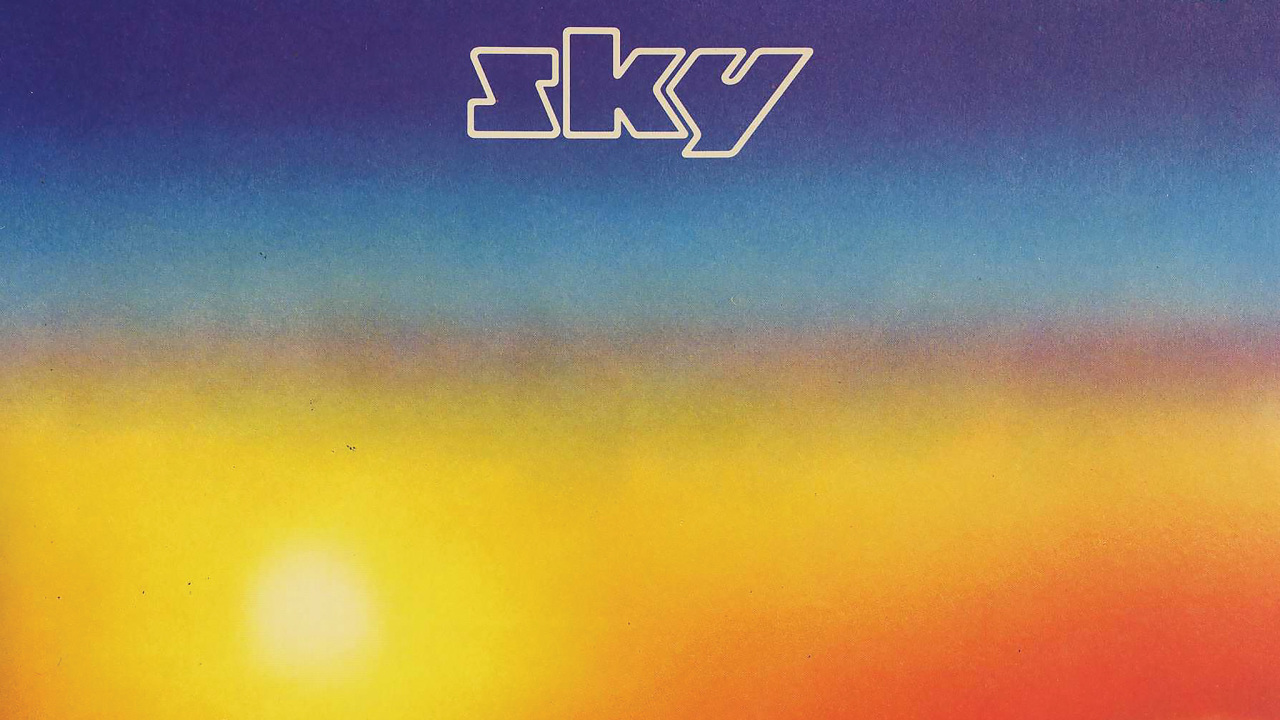You can trust Louder
Given their calibre, it’s little surprise that when John Williams, Herbie Flowers and Curved Air’s Francis Monkman started Sky at the end of the 70s, they were perceived as being a somewhat po-faced selection of highly trained musicians, suitable for appearances on such quality BBC shows as Pebble Mill At One and The Val Doonican Music Show.
Guess what? Clips from both of these (ahem) cutting-edge programmes are included on the bonus DVDs, which come bundled in with their two self-titled albums. That said, when you listen back to these two albums, what comes across is that mixed in with the highbrow aesthetics is subversive humour. You can see this on the aforementioned clips, but it comes more into focus when you’re listening to these albums. The spread of styles goes through progressive, jazz, classical, pop and even novelty. Everything is performed with such élan, confidence, attention to detail and sheer joy. The 1979 debut is a little disjointed, although it comes together on the epic When Opposites Meet, which took up the whole of the second side on the original vinyl version. A lot of this music could have been effectively used to soundtrack Doctor Who, such is the futuristic melodrama throughout. Their double album, Sky 2, from 1980 is a lot more cohesive, allowing each member the chance to shine through while never forgetting the band dynamic. It flows better, whether on variations on the classical themes of Vivaldi, Bach and 16th-century master Michael Praetorius, or on their original compositions. They even had a hit with Toccata, which incongruously got them an appearance on Top Of The Pops. Just how out of place they were can be clearly seen on the clip that’s included on the bonus DVD, along with an impressive performance from Hammersmith Odeon. Looking back on all this, you realise that although they were successful at the time, Sky had the wrong audience, with most being devotees of easy listening. They deserved a more discerning, prog following.
Sign up below to get the latest from Prog, plus exclusive special offers, direct to your inbox!
Malcolm Dome had an illustrious and celebrated career which stretched back to working for Record Mirror magazine in the late 70s and Metal Fury in the early 80s before joining Kerrang! at its launch in 1981. His first book, Encyclopedia Metallica, published in 1981, may have been the inspiration for the name of a certain band formed that same year. Dome is also credited with inventing the term "thrash metal" while writing about the Anthrax song Metal Thrashing Mad in 1984. With the launch of Classic Rock magazine in 1998 he became involved with that title, sister magazine Metal Hammer, and was a contributor to Prog magazine since its inception in 2009. He died in 2021.


